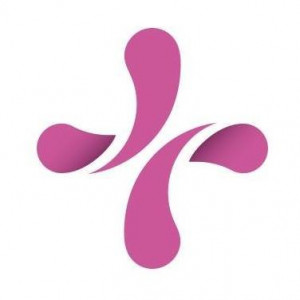Why work for Nebraska Methodist Health System?
At Nebraska Methodist Health System, we focus on providing exceptional care to the communities we serve and people we employ. We call it The Meaning of Care – a culture that has and will continue to set us apart. It’s helping families grow by making each delivery special, conveying a difficult diagnosis with a compassionate touch, going above and beyond for a patient’s needs, or giving a high five when a patient beats a disease or conquers a personal health challenge. We offer competitive pay, excellent benefits and a great work environment where all employees are valued! Most importantly, our employees are part of a team that makes a real difference in the communities we live and work in.
Job Summary:
Location: Methodist Hospital
Address: 8303 Dodge St. Omaha, NE
Work Schedule: 7am to 7pm
This position will float between high acuity units depending on the needs of the hospital. Accountable for the delivery of quality care to patients and families according to the individualized needs of the patient.
Responsibilities:
Essential Functions
1. Provide appropriate care specific to the age of the customer/patient, to ensure understanding and comfort level of treatment as outlined in the Population Specific Criteria.
- Demonstrate ability to identify opportunities for and give individualized customer service/patient care according to customer/patient needs.
2. Perform an initial and ongoing assessment to determine the assigned patient's ongoing nursing care needs.
- Include data from the patient/significant other(s) in the assessment as appropriate.
- Prioritize data collection according to patient's immediate needs.
- Use assessment findings in discharge planning.
3. Develop/review/revise and individualize the plan of care to address the patient's nursing care needs for optimum patient care outcomes. (Consultation and resources, nurses as teachers.)
- Collaborate with providers and other clinical disciplines as appropriate.
- Provide teaching specific to the patient's health care problem.
- Care plan reflects continuing care needs and/or referrals for discharge/transfer.
4. Implement interventions that are consistent with the established plan of care in a safe and appropriate manner (Professional Models of Care).
- Is familiar with, and follows, nursing protocols and standards of care for their unit.
- Use current knowledge in nursing practice based on standards and research literature.
5. Evaluate patient care to determine response to care/interventions for optimal patient outcome.
- Monitor outcomes and documents patient response to interventions.
- Evaluate the patient's capabilities and/or limitations related to nursing and medical interventions.
- Continually monitors the patient and/or significant other(s) ability to manage care needs after dismissal.
- Give a complete verbal or written change of shift report to the oncoming care provider. Includes current care requirements, to include SBAR (situation, background, assessment and recommendation) content, and is familiar with the overall plan of care.
- Recognize and address patient and family capabilities and limitations (physical and mental).
6. Perform technical skills competently and independently to assure patient safety (autonomy).
- Able to competently perform technical skills independently.
- Is accountable to learn new skills and equipment within areas' specifications and time frame.
- Demonstrate correct and safe technique in the use of equipment according to specific product information and policy and procedure manuals.
- Follow appropriate procedure for obtaining and returning or cleaning/disposing of equipment and supplies.
7. Maintain a professional behavior in attitude, demeanor, interactions to achieve organization's mission. (Quality Improvement, Image of Nursing, Interdisciplinary Relationships, Professional Development, community and the healthcare organization.)
- Communicate effectively to solve problems at the personal and unit level.
- Is approachable and professional in working with other health professionals, ancillary staff, patients and family.
- Take pride in the unit by active participation in restocking and maintaining a clean environment.
- Maintain a professional appearance, behavior, and work environment.
- Maintain competence in area of experience.
- Participate in meetings and/or committees as needed to assist in decisions effecting area/unit or organization.
8. Initiate action to correct, prevent, and/or minimize risk(s) to the patient, family or hospital employees (e.g., falls, needle sticks, patient concerns). (Quality of Care)
- Complete appropriate report form for any risk (e.g., variance/incident report, patient concern report, maintenance request).
- Communicate to appropriate personnel regarding unresolved issues.
- Work within the scope of practice as defined by State Nurse Practice Act.
- Observes appropriate precautions when administering hazardous medications or handling excreta from patients who have received hazardous medications.
9. Review, delegate and evaluate plans for appropriate utilization of staff at all levels of practice in accordance with the provision of the state's Nurse Practice Act and the Professional Standards of Practice.
- Right task (within the scope of practice, according to the job description, based on the desired outcome, task routine, non-complex, low risk and predictable outcome).
- Right person (assess competency by: certification/licensure, job description, skills checklist, demonstrated skill).
- Right communication (clear, concise, correct, complete).
- Right feedback: the Reciprocal Process (ask teammates' input first, recognize effort, get teammates' solution to problem, check off points).
10. Fiscally accountable.
- Act professionally responsible for human and other resources.
- Charge accurately for use of supplies and equipment according to policy.
Schedule:
7am to 7pm
Job Description:
Job Requirements
Education
- Bachelors of Science in Nursing (BSN) from an accredited school of nursing required by December 31, 2020 if hired after 2012 or five years from hire date for nurses hired after 2015.
- For MFH: Graduate from an accredited Diploma School of Nursing/College of Nursing with an Associate of Science Degree in Nursing (ASN) or Bachelor of Science in Nursing (BSN) required, Bachelor of Science in Nursing (BSN) preferred.
- Graduate of an accredited school of nursing required.
- Successful completion of annual mandatory education requirements.
- National Institute of Health Stroke Scale (NIHSS) certification training required by the completion of orientation.
Experience
- Minimum of 2 years of experience required in Intensive Care, Cardiac-Intensive Care, and/or Emergency Department.
License/Certifications
- Current valid Nebraska Registered Nurse (RN) License, valid compact multistate license, or a temporary permit while awaiting licensure required.
- Current American Heart Association or American Red Cross Basic Life Support (BLS) strongly preferred at time of hire, required within 3 months of hire.
- Current American Heart Association Advanced Cardiac Life Support (ACLS) Certification required.
- Current Pediatric Advanced Life Support (PALS) is required.
- Current Trauma Nurse Core Curriculum (TNCC) required within two years.
- Certification(s) in area of specialty preferred.
- Certified Critical Care Nurse (CCRN) Certification is preferred.
Skills/Knowledge/Abilities
- Strong interpersonal skills necessary to effectively communicate and interact with patients, family members, hospital personnel, and co-workers.
- Ability to multi-task and prioritize work assignments.
- Ability to learn, retain, and utilize computer skills that are required for department and hospital information system.
Physical Requirements
Weight Demands
- Medium Work - Exerting up to 50 pounds of force.
Physical Activity
- Occasionally Performed (1%-33%):
- Climbing
- Crawling
- Kneeling
- Sitting
- Frequently Performed (34%-66%):
- Balancing
- Carrying
- Crouching
- Distinguish colors
- Keyboarding/typing
- Lifting
- Pulling/Pushing
- Repetitive Motions
- Stooping/bending
- Twisting
- Constantly Performed (67%-100%):
- Grasping
- Hearing
- Reaching
- Seeing/Visual
- Speaking/talking
- Standing
- Walking
Job Hazards
- Not Related:
- Rare (1-33%):
- Radiation Alpha, Beta and Gamma (particles such as X-Ray, Cat Scan, Gamma Knife, etc)
- Radiation Non-Ionizing (Ultraviolet, visible light, infrared and microwaves that causes injuries to tissue or thermal or photochemical means) - NICU only
- Occasionally (34%-66%):
- Physical hazards (noise, temperature, lighting, wet floors, outdoors, sharps) (more than ordinary office environment)
- Equipment/Machinery/Tools
- Explosives (pressurized gas)
- Hazardous Drugs (exposure risks, personal protective equipment required)
- Frequent (67%-100%):
- Chemical agents (Toxic, Corrosive, Flammable, Latex)
- Biological agents (primary air born and blood born viruses) (Jobs with Patient contact) (BBF)
- Mechanical moving parts/vibrations
About Methodist:
Nebraska Methodist Health System is made up of four hospitals in Nebraska and southwest Iowa, more than 30 clinic locations, a nursing and allied health college, and a medical supply distributorship and central laundry facility. From the day Methodist Hospital was chartered in 1891, service to our communities has been a top priority. Financial assistance, health education, outreach to our diverse communities and populations, and other community benefit activities have always been central to our mission.
Nebraska Methodist Health System is an Affirmative Action/Equal Opportunity Employer and does not discriminate on the basis of race, color, religion, sex, age, national origin, disability, veteran status, sexual orientation, gender identity, or any other classification protected by Federal, state or local law.









